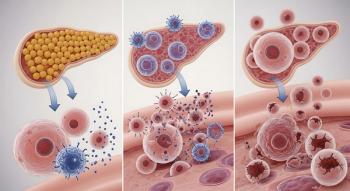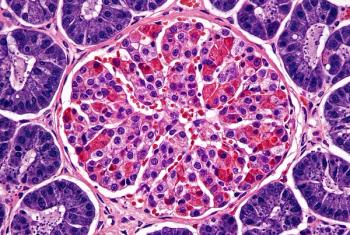
Medicaid Saved When Switching to Interchangeable Insulin Glargine
Researchers also found that there was variation in use of the insulin glargine interchangeable biosimilars across state Medicaid programs.
The introduction of an interchangeable biosimilar insulin glargine saved $60.6 million for Medicaid programs between the fourth quarter of 2021 and the fourth quarter 2022, or about 5% of Medicaid spending on insulin glargine, according to a
“The introduction of an interchangeable biosimilar for insulin glargine helped reverse the declining trend of the biosimilar market share and generated substantial savings for Medicaid programs. However, use of interchangeable biosimilars varied widely across states, suggesting the need for more education and incentives to promote their adoption,” researchers said.
Sanofi’s Lantus (insulin glargine) is a long-acting insulin analog used to improve glycemic control in adults and children with diabetes. An interchange biosimilar developed by Biocon Biologics
Semglee (insulin glargine-yfgn) and an unbranded product launched in November 2021. At the time, they were the first interchangeable biosimilars to Lantus. Since then, a second interchangeable biosimilar has been approved: Lilly’s Rezvoglar (insulin glargine-aglr).
Last year, a
At the same time, Sanofi announced that for 2024, it has
Investigators at Des Moines University wanted to assess the impact of the first interchangeable biosimilar for insulin glargine on spending and use of state Medicaid programs in the United States
Led by Joshua Devine, Pharm.D., Ph.D., assistant professor, Master of Public Health Program, investigators used Medicaid state drug use data to examine cost and market share of insulin glargine products from 2020 to 2022. They collected quarterly data on the number of units and total amount reimbursed for all insulin glargine products. We calculated market share and estimated cost for both Lantus and the interchangeable insulin glargine.
They found that insulin glargine biosimilars had 48% market share in the first quarter of 2020. But after the introduction of an interchangeable biosimilar, biosimilar market share grew by 2.8% per quarter through the fourth quarter of 2022.
Investigators also found that there was significant variation in interchangeable biosimilar use across state Medicaid programs and six states reported no interchangeable biosimilar use in 2022.
The global insulin glargine market is expected to grow from $5.45 billion in 2024 to $8.43 billion in 2031, according to data from
Newsletter
Get the latest industry news, event updates, and more from Managed healthcare Executive.























